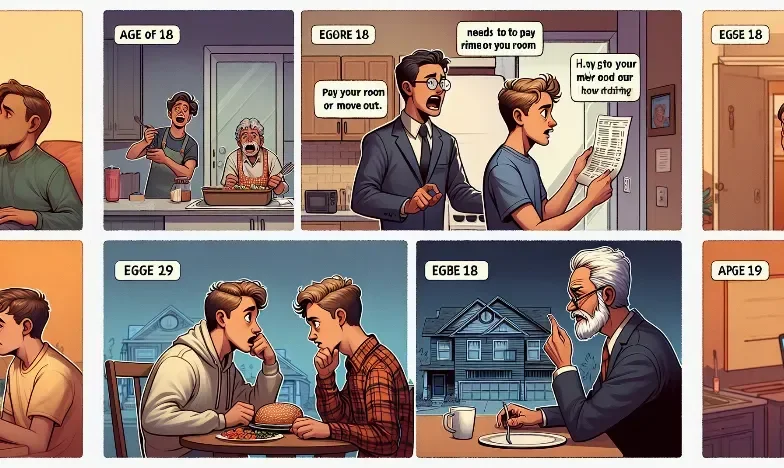“Since Turning 18, My Dad Charged Me Rent for My Own Room, and Now He Expects Me to Support Him”
When I turned eighteen, my dad, Walter, sat me down for a serious conversation. “Chloe,” he said, “you’re an adult now. It’s time you start paying rent or find your own place.” I was taken aback. I had just graduated high school and was planning to attend community college while working part-time at a local diner. The idea of paying rent to live in my own room felt like a betrayal.
Walter was firm. “I’ve done my part raising you. Now it’s your turn to contribute.” From that day on, I had to pay $400 a month for my small bedroom and buy my own groceries. My part-time job barely covered these expenses, leaving me with little for anything else.
I remember the first time I went grocery shopping alone. It was overwhelming. I had no idea how much food cost or how to budget properly. My dad never taught me these things; he just expected me to figure it out. I often skipped meals to save money, and my grades suffered because I was constantly stressed about finances.
Years went by, and I managed to finish my associate degree. I found a full-time job as an administrative assistant, which allowed me to move out into a small apartment with my friend Ellie. Life was still tough, but at least I wasn’t under my dad’s roof anymore.
Walter and I didn’t talk much after I moved out. He seemed to think that since I was no longer living with him, he had no obligation to maintain a relationship with me. The few times we did speak, it was always about money. He would ask if I could lend him some cash or help pay one of his bills. I usually obliged, feeling guilty for reasons I couldn’t quite understand.
Then, about a year ago, Walter lost his job. He called me in a panic, saying he couldn’t make rent and needed my help. “Chloe, you’re doing well now. You owe me this,” he said. His words stung. Did I really owe him? For what? For charging me rent as soon as I turned eighteen? For making me feel like a burden?
Despite my resentment, I agreed to help him out temporarily. But temporary turned into permanent. Walter never found another job and became increasingly dependent on me. Every month, I sent him money for rent and groceries, cutting into my own savings and plans for the future.
One day, Ellie confronted me about it. “Chloe, you can’t keep doing this. It’s not fair to you,” she said. She was right, but the guilt was overwhelming. Walter had drilled into me that family takes care of each other, even if it meant sacrificing my own well-being.
The breaking point came when Walter demanded that I take out a loan to cover his mounting debts. “You have good credit; they’ll give you the money,” he insisted. I refused, and for the first time in years, we had a massive argument.
“You’re selfish,” he yelled. “After everything I’ve done for you, this is how you repay me?”
I hung up the phone and broke down in tears. The emotional toll of supporting Walter had finally caught up with me. I realized that no matter how much I gave, it would never be enough for him.
Today, we barely speak. Walter still sends me messages asking for money, but I’ve stopped responding. The guilt is still there, but so is the anger and hurt. I’ve started seeing a therapist to help me navigate these complicated emotions.
I don’t know what the future holds for my relationship with Walter. All I know is that I’ve spent too long sacrificing my own happiness and well-being for someone who never appreciated it.
